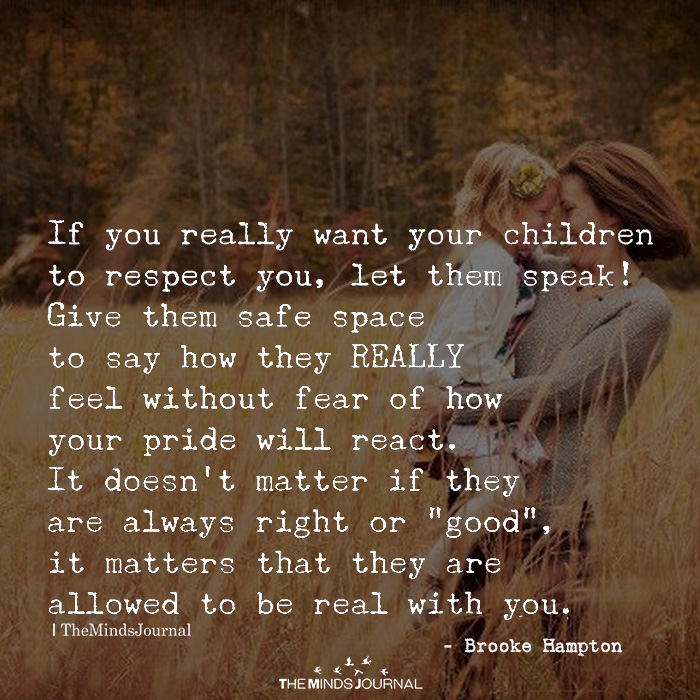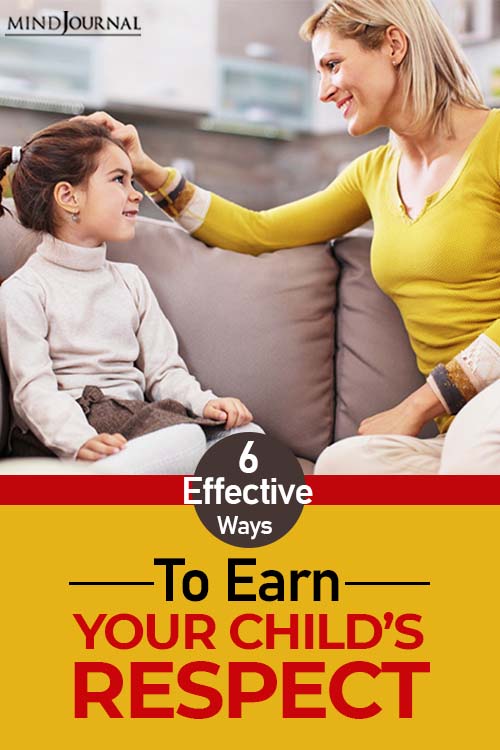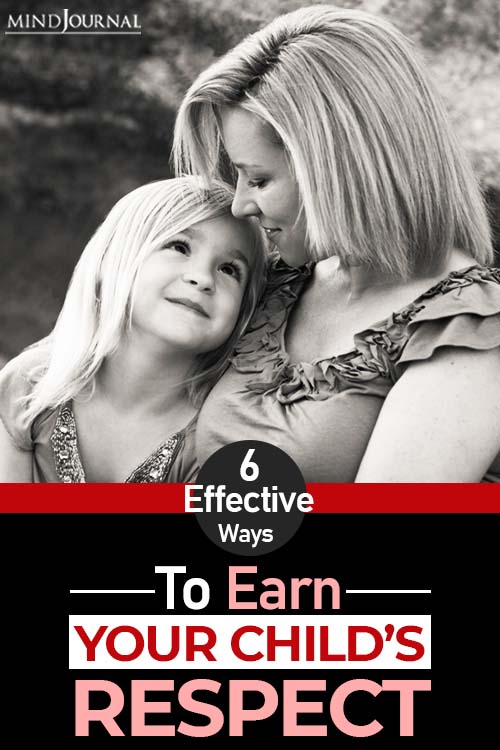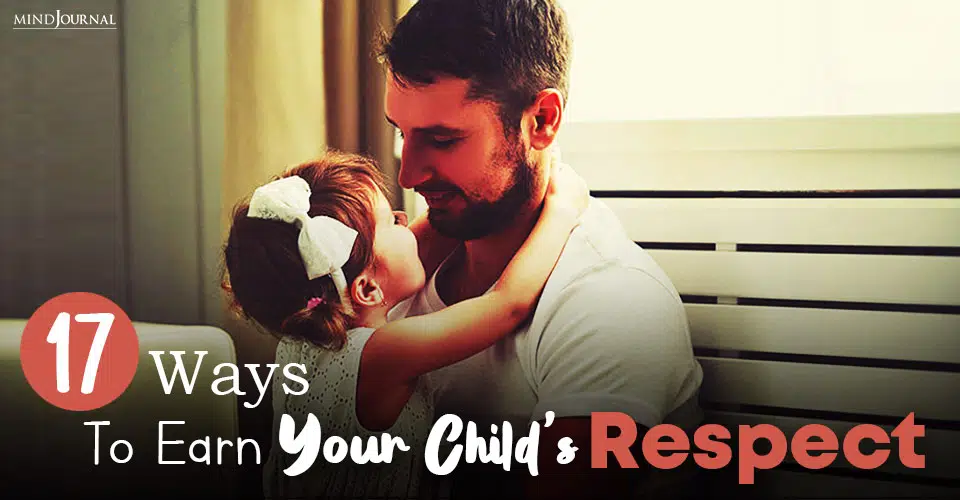Everyone wants to be respected and that goes for children too. Many parents fail to acknowledge that respect is something you cannot demand, it has to be earned. It’s a natural process for a kid to look up to their parents, but respecting them is a different story.
Teaching kids to respect others is an imperative but difficult task. It starts with your child respecting you as a parent. In this article, we talk about six helpful ways to teach a kid how to respect parents,
Recently I was at a shop with my kids, a kid was screaming at his mom for not giving him his desired object and then turned to the shop owner to do the same. Well, being a mother it was not at all amusing, rather it’s frightening. This kind of incident is a gentle reminder of what could go wrong in our parenting style. Gentle, yes because it’s the incident of others but soon can be part of our show if we don’t realize the basic necessity of teaching our kids the most important thing of growing up, respecting others.
There are two types of parents. Many parents hold the belief that being strict will make their children well behaved, but parenting through the use of fear and intimidation leads your child to behave out of fear of the consequences, not respect. When children genuinely respect their parents, they hate to disappoint them.
But gaining this level of trust takes work and commitment. Other kinds of parents are too permissive, they just let their children be themselves, they just let things slide to avoid conflicts. This type of parenting also results in children developing a lack of self-control and empathy. Neither of these approaches teaches children to understand the needs of others but only focus on themselves.
Read: 4 Types Of Parenting Styles In Psychology: What Kind Of A Parent Are You?
Everything that includes giving begins at home, respect is one of them. If you can teach your children to respect you and also themselves when they are young, they’re likely to respect others while they are growing up and that value will lead them to a happy, successful life. So how do you make your kids respect parents?
Here we have summarized some ways to teach your kid to be respectful, to you and eventually others.

1. Respect Them. Make your child respect parents but first teach them what is respecting and you can teach this to your kid by showing them the same respect. There is nothing that can be achieved without giving. Respect is something you need to give your child if you want your kid to respect parents too.
2. It’s natural to get upset with your kid, but yelling and giving punishments will only get you halfway as your child will listen to you out of fear, not out of love and respect. Understand and respect your kid’s preferences and values. If we are sarcastic and rude to them, it will not be long before they will return the favor. Because it is what they have seen and habituated with.
3. Calmly explain to them their behavior and remind them your family rules, Phrases like “We don’t behave like that in our family”, “ Just calm down and think it through how you have behaved, is this how one should talk”. etc. will make them stop and rethink their actions. But of course, it needs practice though.
4. Set Example. I may have said it earlier but it’s the absolute truth, children are the greatest copycats. And their main copy source is their parents. Maybe we don’t know it, but parents are the biggest influencer in a child’s life. Kids are always noticing, observing, and mimicking their parents’ actions and behaviors as for them it’s natural, it’s the thing that should be done. Unknowingly we set an example of behavior for our kids, positively or negatively.
5. The priority is to look out for your own down corner and rectify them. If your child sees you getting in a shouting match with their grandparents, they will never know the importance of talking well with you. If they ever see you behaving rudely with the street homeless person. They will never behave correctly with the weaker or younger person, let alone you. Therefore it’s necessary that you demonstrate the actions you want to see coming from them
6. Listen To Them. A good way to practice teaching kids to respect parents. Encourage your kids to talk to you when things get tough for them. stop what you’re doing, and listen with your full attention. Be careful not to turn your conversation into an interrogation by questioning them.
7. Make your kid comfortable telling you about their feelings. Don’t judge, and acknowledge their emotions. Listen to their needs, become the pillar of support for them.
8. Give positive advice on what and how your kid should perform an action. They’ll feel valued and connected to you and will confide in you about their problems.
9. Set Expectations. Setting expectations and limits makes your kid behave. Every kid, scratch that, every person needs boundaries as these define our responsibilities. These boundaries and expectations have to be communicated with your child and steer clear of what is expected from them.
10. It’s important to set positive and realistic guidelines which you think can be achievable by your kids. Children generally try to live up to these rules and guidelines. Also, it is equally necessary to make them understand the consequences if they failed to follow the rules. Always give credit when they implement the expectations.
Read: Personal Boundaries: 9 Core Boundaries To Live By
11. Be Honest. Be honest with your kid, accept your mistakes if there, that is how they will know it’s ok to make mistakes as long as they don’t repeat them. Tell them the truth and never give them false hopes in order to make them do something. It leads to your kid gradually stopping listening to you.
12. Volunteer to share your feelings with them, your fears, and insecurities, and mistakes. It is important that your child knows it’s okay to make mistakes and to be imperfect as long as they don’t repeat them again.
13. One of the trivial lessons you can give to your child while growing up is learning from their mistakes and if possible rectify them and the first step towards that is to acknowledge their mistakes. This also includes your honest guidance, don’t reward the lie. Sometimes it takes to hurt their feelings but your kid will learn to respect you as a relatable figure for honest guidelines.
14. Trust them. Kids want to know that you respect and value their ability to make decisions and arrive at their own conclusions. Be reliable, keep your promises and trust your kid’s feelings in order to gain the same trust of them in yourself.
15. Give them some duties and ask for their opinions in some things. That is how they understand that their opinions are valued and get motivated to impress you in the future.
16. The most important factor while getting your child to respect parents is trusting them with their instincts. Allowing them to explore the things around them by themselves gives them a sense of responsibility. Respect their feelings and don’t try to impose your choices on them and your child will learn to be more comfortable around you and trust you to share their emotions with you.
17. Supporting your child’s emotional fallouts goes hand in hand with acknowledging and expressing your own feelings appropriately and honestly. If you acknowledge your toddler’s feelings rather than dismissing her sadness or frustration, you can make a difference in how they deal with their feelings and it will have longer-term effects such as respect for parents and others around them.











Leave a Reply
You must be logged in to post a comment.